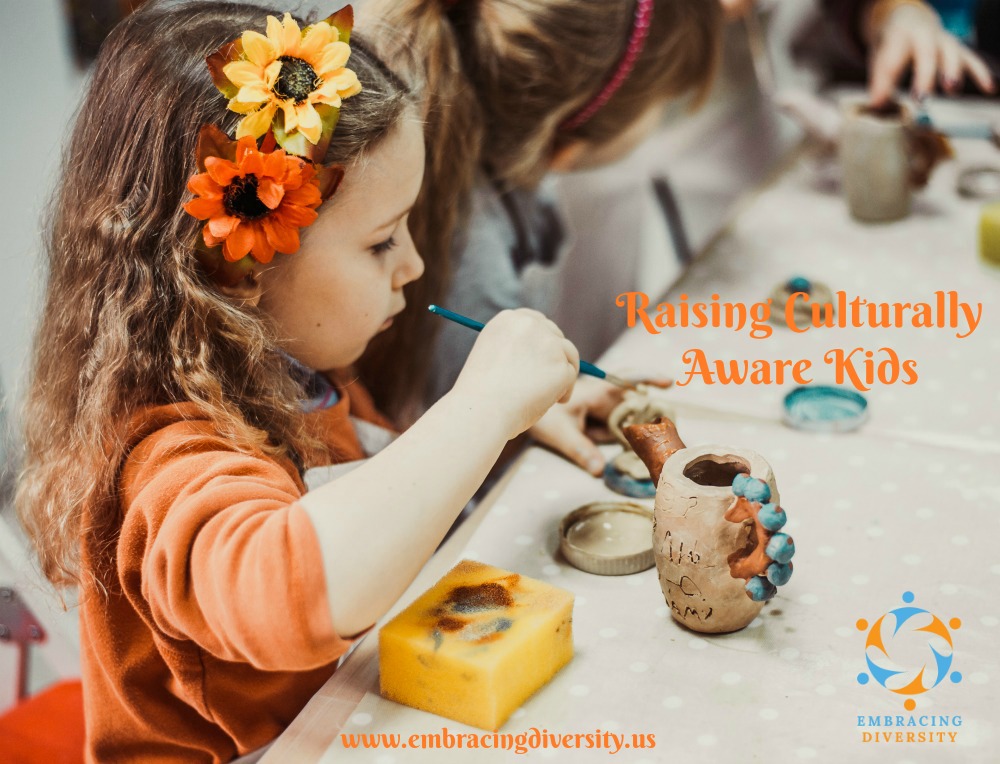As a mother, I often catch myself saying things my grandmother used to say, like “things aren’t the same as they used to be,” as I sigh and reminisce about my childhood. The truth is, nothing is like it used to be, and we must prepare our children to navigate a complex world. Raising culturally aware kids is essential for any parent, especially those of us parenting in a rapidly changing society that demands greater understanding.

Growing up in the Dominican Republic, I didn’t have much direct contact with people from other countries. However, my father’s love for music meant that American and British bands were often on the radio. From The Beatles to Jimi Hendrix to Santana, the rock and pop of the ’60s, ’70s, and ’80s were as common in our home as salsa and merengue. My cultural exposure was further enriched by the many telenovelas I watched from Mexico, Brazil, Colombia, and Venezuela. I can confidently say that I was one of the culturally aware kids of my time, at least in the Dominican Republic.
Fast-forward to 2017, and my children have the incredible opportunity of growing up in the United States, where it’s easy to meet people from different cultures daily. However, it’s important for me to guide and teach my children to become culturally aware—sensitive, empathetic, friendly, and open-minded. Many might think this is only important for people of color, but I’m here to tell you that this is a global necessity, and the sooner we start, the better.
In a world increasingly divided by cultural differences and nationalities, raising culturally aware kids is imperative if we want to create a world with less violence and more prosperity. As parents, we have the power to change our world by shaping the citizens of the future, and it’s clear we need a shift in direction if we want to build societies that thrive and live in peace. Much of the violence we see stems from intolerance and a lack of understanding about other cultures—a fear of the unknown.
Let’s commit to raising the next generation of peacekeepers, bridge-builders, and connectors by giving them the gift of understanding through knowledge.

Culturally Aware Kids: 5 Parenting Tips
1. Be a Cultural Ambassador. I always tell people with different backgrounds raising kids in the United States that they are their children’s main cultural touchstone when it comes to their country of origin and culture. To raise culturally aware kids, awareness must start with their own cultural background. Teaching children about your own culture—or cultures, if your partner has a different background—is crucial to giving them a foundation that makes them proud. Having a strong sense of identity will help kids appreciate the beauty of other cultures while feeling empowered by their own.
2. Choose Schools Wisely & Be Involved. Depending on where you live, you may or may not have the option to send your kids to a diverse school. If you do have that choice, consider a bilingual program if one is available, as different schools across the U.S. offer dual-language programs. If diverse schools are not an option, your involvement becomes even more important. You can bring cultural diversity into the classroom by suggesting books, helping organize activities, and participating in your child’s class to share your own culture with their peers.
3. Engage Them in Non-Traditional Cultural Activities. While the typical extracurricular activities might seem limited (ballet, tap, basketball, baseball, etc.), if you look for different options, you might discover activities you hadn’t considered. For example, my daughter is part of a Mexican folk dance group, and she loves it. Even though we are Dominican, I want her to experience the richness and diversity of Mexican colors and rhythms as a way to expand her worldview. My son is about to start soccer practice, which is somewhat unusual for Dominicans since baseball is deeply rooted in our culture. These experiences will not only make them more culturally aware but also help them respect and appreciate different people, traditions, and perspectives.
4. The Gift of Travel. Traveling enriches a person’s life in many ways. If you can take your kids overseas to experience a different culture, do it. However, for big families like mine, international travel can be cost-prohibitive. Don’t let that discourage you! Living in the United States offers a unique opportunity to immerse yourself in other cultures without leaving the country. Plan road trips to visit national parks and teach your kids about Native American tribes and their customs. You can also visit major cities like New York or Chicago and explore neighborhoods that give you a taste of China, Italy, Colombia, India, or any other country on the planet. With some research, you can find your ideal destination. Raising culturally aware kids also means teaching them that being American is synonymous with being multicultural. They’ll learn that while everyone is different, those differences are what make this country special.
5. A Day in the Life. A friend of mine, who has been a teacher for more than 20 years, gave me a great idea for cultural immersion without leaving home. This “staycation” concept involves transforming your home into a different country for a day. The night before, after the kids go to sleep, decorate the house, prepare “passports” (you can find these at dollar stores), and gather music, books, history, and, of course, food from the selected country. In the morning, wake them up with a suitcase by their bed and invite them to travel with you. Spend the day eating the foods, reading the books, dancing to the music, and even watching a movie from that country. It’s a fun, engaging, and educational experience—perfect for summer when there’s no pressure from homework or early school mornings.
The best part of raising culturally aware kids, in my opinion, is that you learn and enjoy so much in the process. It enhances your own knowledge and deepens your appreciation for other cultures and the beauty of diversity.
I’d love to hear from you: What are your tips for raising culturally aware kids?
Leave a Reply